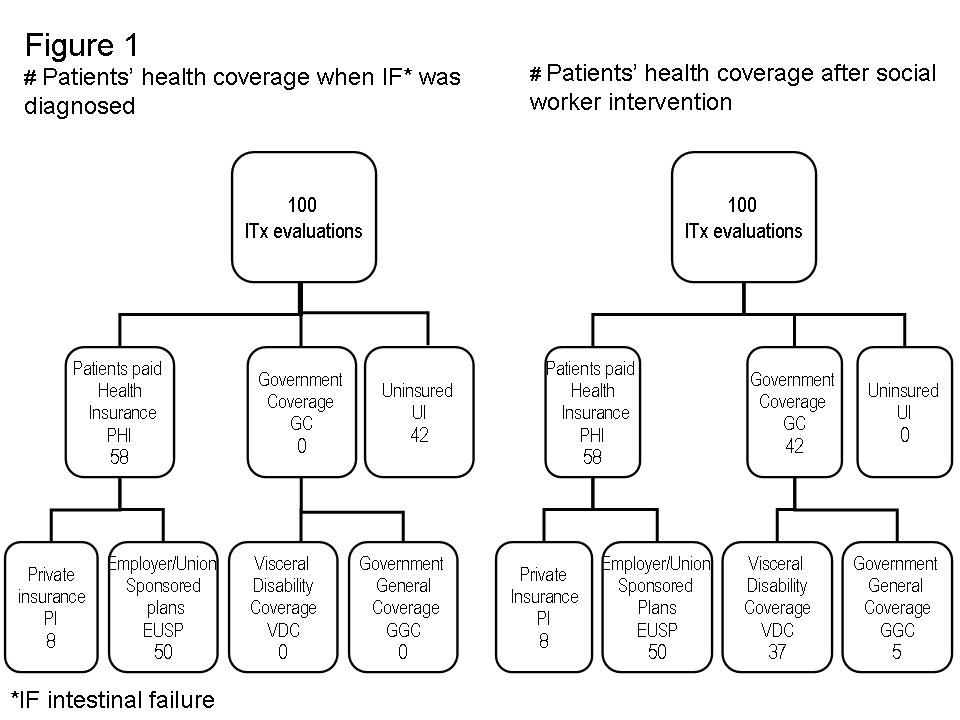Introduction: In Argentina the health care (HC) is provided by a multi-payer system including both, State and Private HC organizations. Chronic IF care is provided by both systems, but intestinal transplant (ITx) is only offered in the private structure. In Argentina, chronic IF was officially included among the visceral disabilities (VD) in 2011. The Federal Government grants a certificate to individuals with VD; this benefit allows them not only the full access to HC coverage including PN and ITx, but also gives them free admission to public transportation and provides them a pension. In addition, VD is not an impairment to get employment in a public or private work. In spite of the existence of a theoretical adequate access to VD certificate, there is still a lack of knowledge and education on how to obtain it, becoming a barrier, delaying or precluding its accessibility.
Aim: To analyze the accessibility to IF therapy and ITx in our center and to measure the impact of the social worker intervention
Material and methods: This is a retrospective review of a prospectively filled database with IF patients that were evaluated for ITx at our Intestinal Failure, Rehabilitation and Transplant Unit, from March 2006 to December 2018.
Patients were divided in three categories according to their HC coverage and it was recorded for each patient when IF was diagnosed and when ITx evaluation was performed:
1) Patient’s paid health insurance (PHI): a) Private insurance (PI); b) Employer and Union sponsored plans (EUSP)
2) Government coverage: (GC) a) Visceral Disability coverage (VDC) b) General government coverage (GGC)
3) Uninsured (UI)
Results: A total of 100 patients were analyzed (Figure 1): when IF was diagnosed, 58 had PHI (50 [86%] PI and 8 [14%] EUSPI) and 42 patients were UI.
Due to social worker intervention, when referred for ITx evaluation, all the UI patients could obtain GC (37 patients [88%] got VDC and 5 [12%] got GGC), in order to have access to IF treatment including ITx.

Conclusions: Although many of the IF patients had PHI when IF was diagnosed, a high percentage had no coverage and due to specialized social worker intervention they could obtain GC, allowing them to get appropriate treatment for their medical condition. Rare diseases require a multidisciplinary approach for the diagnosis, treatment and the suitable use of the available social resources to obtain adequate access.
.jpg )